'X' Brings Blood and Boinking Back to the Big Screen
- Chance Freytag

- Mar 19, 2022
- 5 min read
In the last half-decade, the plague of quote-unquote “elevated” horror has come to dominate film circles and cinema screens. Though the term is contested and vaguely defined, I tend to see these films as having existential, front-loaded screenplays that confront grief, relationships, and a plethora of hot-button political issues and seemingly unending long takes crammed full of negative space (some hokey literalization of Lovecraftian social insignificance).
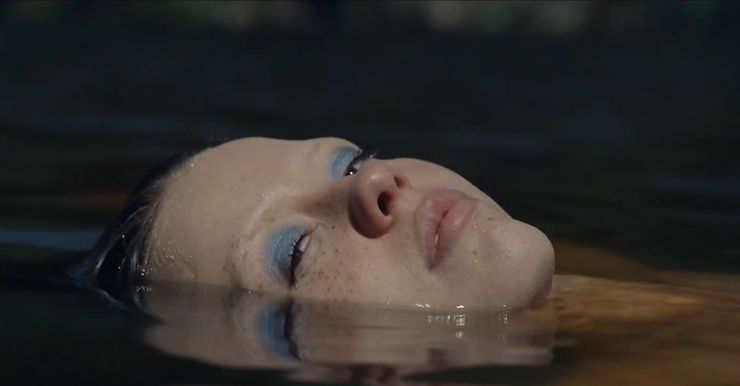
These films are low on thrills and chills and high on “I just went through a really bad breakup and I think it might’ve been my fault.” Formally and thematically, so-called elevated horror movies are, more often than not, ashamed of their genre roots. The label alternately betrays a certain holier-than-thou-ism and deep-seated guilt that the word “horror” is uttered at all; to call horror “elevated” is simply to imply that all other horror is lesser. The term is nothing more than a futile appeal to an establishment that disregards genre film.
Yet, counter to the Ari Asters and Oz Perkins of the world, there’s still some truly exciting and gnarly horror filmmaking out there, like James Wan’s Malignant and now Ti West’s delightfully indulgent X. Though burdened somewhat by its slow-burn style, X’s ruminations on identity, presentation, and sex are saddled in a goofy (and, to some I’m sure, scary) truth: the elderly fuck, too.
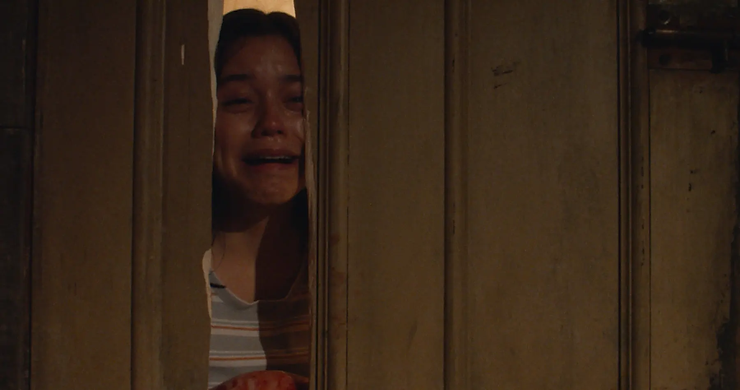
Anyone who has read my writing knows that, ever since I began publishing, I’ve been championing the return of sleaze and filth to modern multiplexes. To those who may wonder what exactly that entails, X isn’t a half-bad example. There’s tasteless sex, a fair amount of gore gags, and confrontational, inscrutable politics. In many ways perceived as the bastion of “underground” cinema (though this title is wholly unearned), A24’s distribution and production catalog has been on the low end of the sleaze spectrum. Though movies like Green Room toe the line, and I appreciate Simon Rex hanging dong in Red Rocket, I would say that they haven’t released anything particularly nasty since Harmony Korine’s controversial tour de force, Spring Breakers, in 2013.
With X, diluted though it may be, Ti West delivers the goods: we’ve got nudity of all kinds, an over-the-top Greek chorus in the form of a TV preacher, Tobe Hooper-esque alligator horror, a back half chock-full of bodily dismemberment, and even a little nose powder peppered in for good measure. The plot, premised on a Texas strip club owner financing a porno movie and the subsequent tormenting of the cast and crew by a sadistic elderly couple, implies all that debauchery and more, and X mostly makes good on its promises.
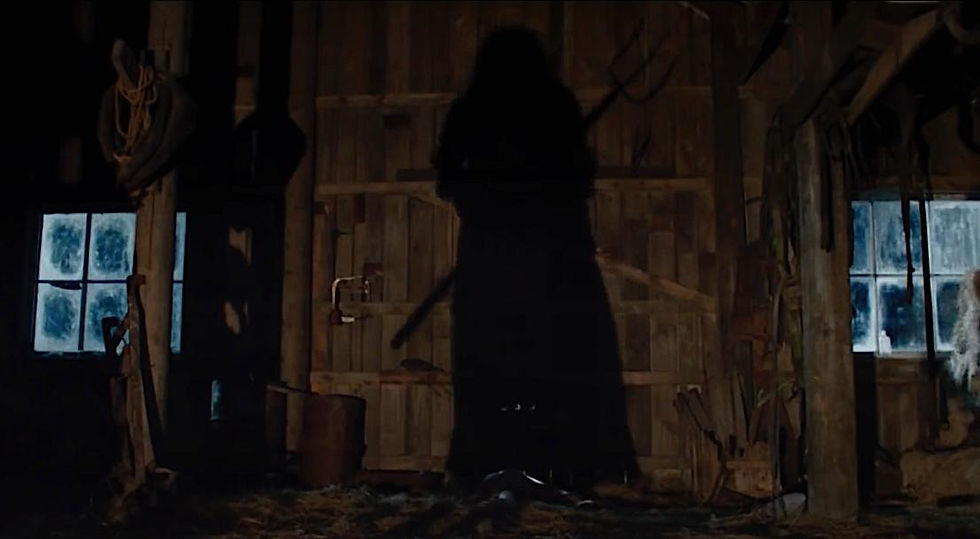
However, being the freaks that my peers and I are, we left the theater wanting a higher dose of a certain something. Our post-viewing discussions centered around hypotheticals that invoked the name of Italian gore maestro Lucio Fulci, the vehicles for our imagined modifications in which West lingered longer on the scuzzy practical gore effects that are too frequently obscured by shadows or quick cuts. Furthermore, the movie’s goofy depiction of pornography, though certainly chuckle-inducing, rarely goes beyond Funny Or Die level parody and lacks the improvisational edge of a genuine one-day wonder, a scuffed and voyeuristic quality from which the film would have benefited. Be all that as it may, it’s hard for me to be too hard on the film in this department. Any movie ridiculous enough to have a climax that features two geezers getting nasty is a-okay in my book.
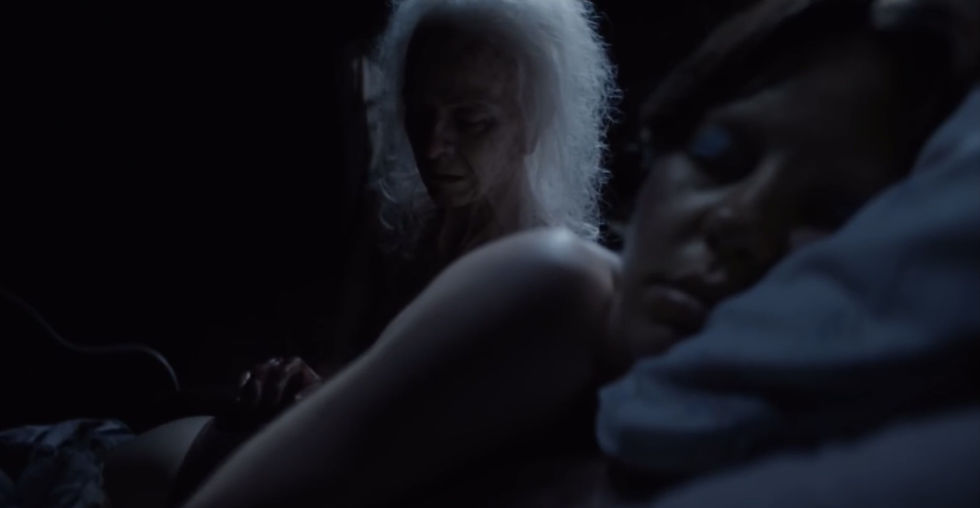
As a genre pastiche, the movie occupies an odd, intersectional territory. Though many have pointed out the obvious influence of The Texas Chainsaw Massacre, X is equally (if not more) indebted to Hooper’s follow-up feature, Eaten Alive. This is especially apparent in the movie’s swampland setting and, as mentioned earlier, its above-average amount of alligator violence. Despite all its overt reverence for Hooper, West’s film is, inescapably, stylistically modern. It’s shot digitally and lacks the hazy, filmic sheen of Hooper’s work, a look that has as much to do with the format as with Hooper’s distinct lighting style, which West only imitates occasionally. Instead, the form alternates between playful postmodern pastiche (split-screen, silly French New Wave editing techniques, and incredibly aggressive wide-angle shots) and the lingering wides typical of “elevated” horror.

For a significant portion of the runtime, X seems to have delusions of respectability that it thankfully abandons by the blood-spattered finale. Although its formal elements rarely recall Hooper and his more exploitative contemporaries, the script remains more firmly grounded in the genre mode. At times, the dialogue even teases a move toward the absurdity of perhaps the greatest working pastiche filmmaker, Rob Zombie. Among Hooper’s disciples and imitators, there seem to be two camps: one exemplified by X, which shuffles toward mild mainstream respectability, and another represented by Zombie’s House of 1000 Corpses (2003), which turns up the dial on all things profane. This writer, for one, has vividly imagined a fully Zombified version of X that dispenses with the “elevated” aspects and is total breakneck insanity. But “what ifs” get us nowhere. Instead, I must deal with the film and its maker as they are.
Ti West has always been an odd duck when it comes to modern genre homage filmmakers. His form has never so directly imitated his forebears in the way that directors like Tarantino, Cattet and Forzani, Rodriguez, and Zombie have. Rather, West lands in the center of a triangle on which the points are Zombie, Zahler, and Saulnier, and (if X is any indication) there it seems he will stay.
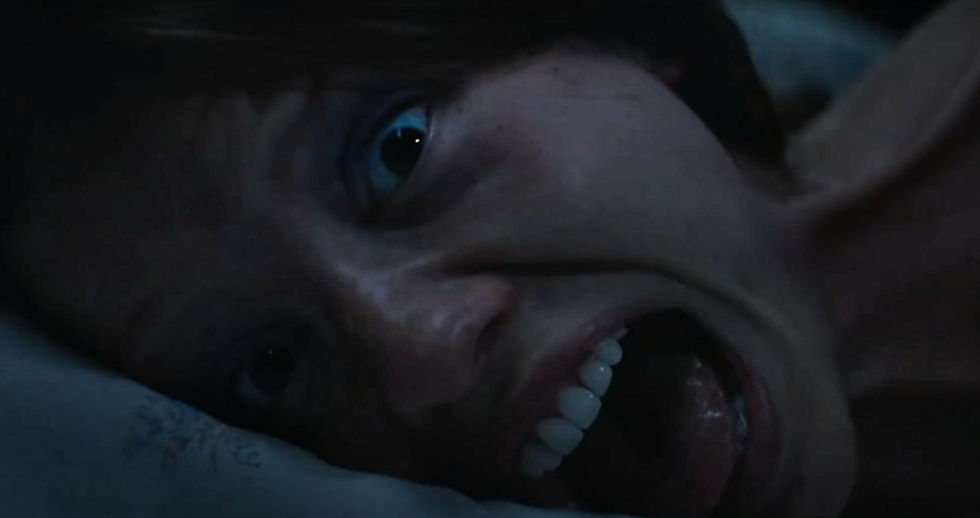
If I haven’t made it obvious enough, I found X delightful. Though its flaws (both ideologically and formally) are apparent throughout, they take a backseat to the sufficient chaos of the content, and West is self-aware enough to know this. A prequel film, Pearl, has already been shot and the trailer is included at the end of X for any patient viewers. By the looks of it, it may just be the rollicking, rainbow-colored, hyperviolent Texas Chainsaw Massacre Part 2 to X’s tonally monochromatic original. There are even murmurs that West is already working on a sequel, and no wonder. If I were in his shoes, I would go all-in on the goofs, groins, and gore, too. There’s also something special in the film’s ethos, a sort of warmness and nostalgia for the decades of cinema past that’s so much more personally targeted than the genre tours of West’s peers. At the end of the day, before it's a reorientation of modern horror techniques, a genre pastiche, or a triumph for cinematic sleaze, X is about how much Ti West misses Tobe Hooper. All I can say to that is, “yeah, buddy, me too.”
-Chance
Kaiser OTC benefits provide members with discounts on over-the-counter medications, vitamins, and health essentials, promoting better health management and cost-effective wellness solutions.
Obituaries near me help you find recent death notices, providing information about funeral services, memorials, and tributes for loved ones in your area.
is traveluro legit? Many users have had mixed experiences with the platform, so it's important to read reviews and verify deals before booking.